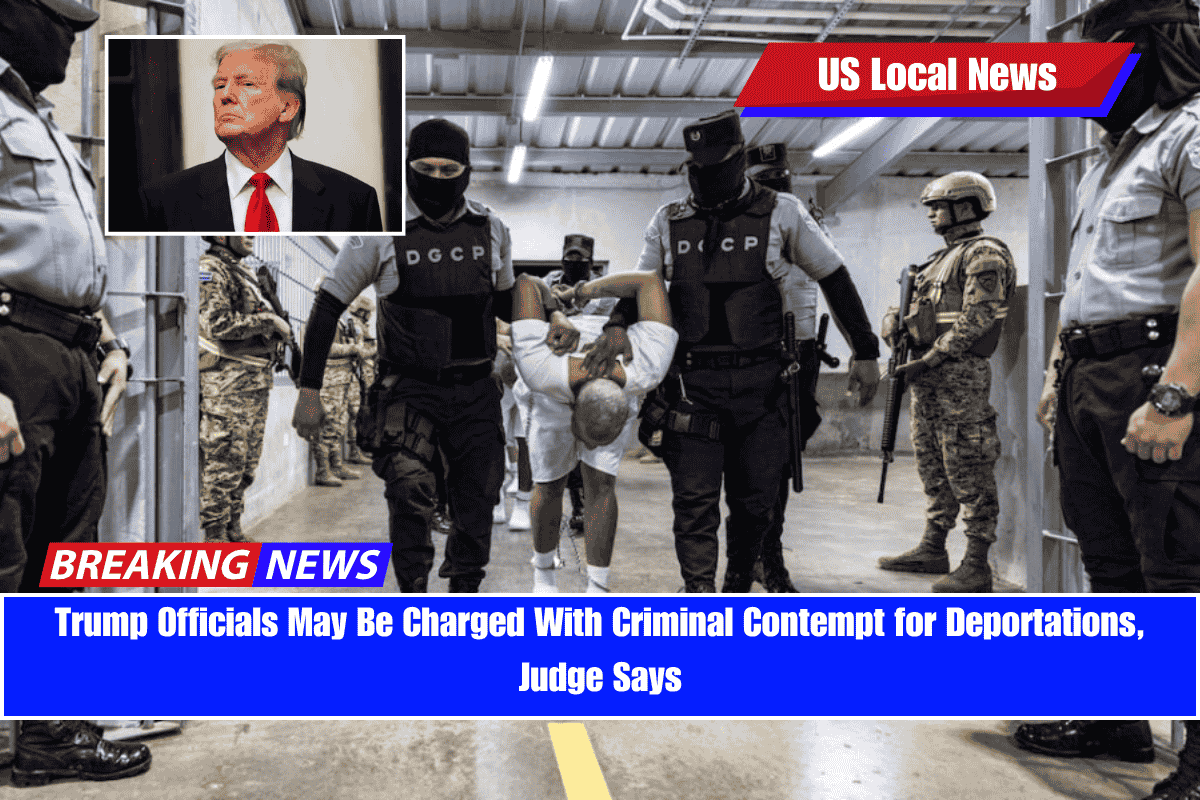Washington, D.C. – A U.S. federal judge has found probable cause to hold officials in President Donald Trump’s administration in criminal contempt of court for defying an order halting the deportation of Venezuelan migrants.
The ruling by U.S. District Judge James Boasberg, issued Wednesday, marks a serious escalation in legal tensions between the judiciary and the executive branch since Trump’s return to office in January 2025.
At the center of the dispute is the March 15 court order blocking the deportation of several alleged members of a Venezuelan gang to El Salvador, issued under the rarely invoked 1798 Alien Enemies Act.
Boasberg accused the administration of “willful disregard” for his ruling, calling their actions deliberate and possibly deserving of prosecution.
Deportations Defied Court Order
Despite the court’s directive to pause deportations and allow the individuals to challenge their removal in court, federal officials proceeded to deport some of the migrants.
Their lawyers and families maintain that many of the individuals deported are not gang members, and were never granted an opportunity to defend themselves against the accusations.
Adding fuel to the fire, Secretary of State Marco Rubio shared a mocking post on X (formerly Twitter) that included El Salvador President Nayib Bukele‘s reaction to the ruling:
“Oopsie… Too late.”
Judge Boasberg directly referenced this in his ruling, stating that the government’s tone suggested it had “defied the Court’s Order deliberately and gleefully.”
Court Threatens Criminal Proceedings
Boasberg has given the administration until April 23 to either show how it plans to comply with the order or identify the officials responsible for the deportations, potentially opening them up to criminal prosecution. He also outlined the possibility of:
- Requiring sworn declarations from officials
- Questioning under oath
- Appointing a special prosecutor if the Justice Department refuses to act
The DOJ has already appealed Boasberg’s ruling to the D.C. Circuit Court of Appeals. A department spokesperson called the judge’s move an “underhanded attempt to maintain power”, labeling it a judicial overreach.
Broader Pattern of Defiance?
The Boasberg ruling comes as part of a larger pattern of legal clashes between the Trump administration and the federal courts.
Democrats and legal experts have increasingly accused administration officials of dragging their feet or ignoring court rulings, especially those unfavorable to controversial immigration or civil rights policies.
In a separate but related case, U.S. District Judge Paula Xinis in Maryland is investigating whether the administration violated an order to facilitate the return of Kilmar Abrego Garcia, who was wrongly deported to El Salvador.
The Justice Department has also appealed that order, resisting efforts to hold senior officials accountable.
Rare Rebuke from Chief Justice Roberts
After Trump called for Judge Boasberg’s impeachment over his ruling, Chief Justice John Roberts issued a rare public statement:
“Appeals, not impeachments, are the proper response to disagreements with court orders.”
This moment underscores growing alarm within the legal community about political interference in the judiciary, as the Trump administration has also targeted universities, law firms, and media outlets in a broader campaign against perceived political opposition.
Contempt Charges and Presidential Pardons
Although criminal contempt charges against government officials are rare, the court’s aggressive stance signals the severity of the breach. If found guilty, officials could face jail time, although President Trump could issue pardons, as he has in the past.
In 2017, during his first term, Trump pardoned Joe Arpaio, the former Arizona sheriff convicted of criminal contempt in a racial profiling case—highlighting how the executive power of the pardon could again come into play.











Leave a Reply